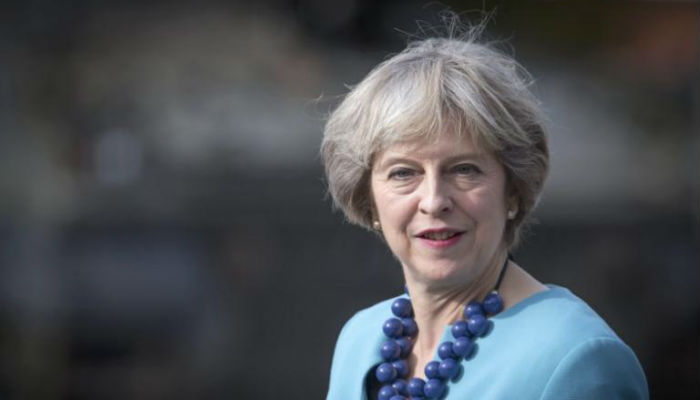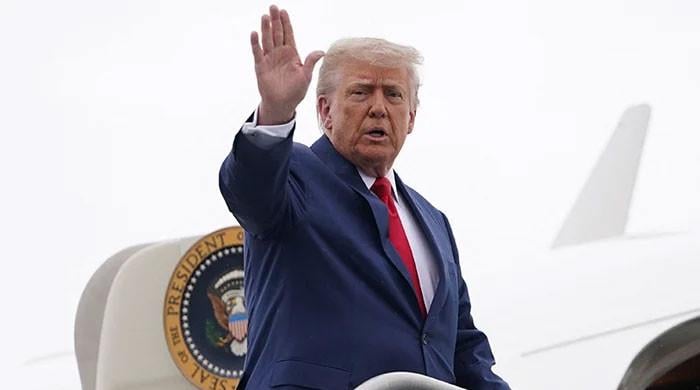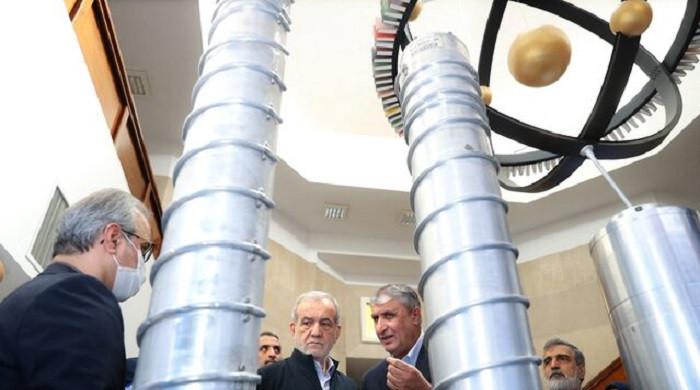May's bid for stronger Brexit hand at stake in UK election
A final flurry of opinion polls gave May's Conservatives a lead ranging between five and 12 percentage points over the main opposition Labour Party
June 08, 2017

British Prime Minister Theresa May is facing the voters Thursday in an election she called to strengthen her hand in looming Brexit talks, with her personal authority at stake after a campaign that saw her lead in opinion polls contract.
A final flurry of opinion polls gave May's Conservatives a lead ranging between five and 12 percentage points over the main opposition Labour Party, suggesting she would increase her majority - but not win the landslide foreseen when she called the election seven weeks ago.
"If we get Brexit right, we can build a Britain that is more prosperous and more secure, a Britain in which prosperity and opportunity is shared by all," May said in a last appeal to voters to trust her to "knuckle down and get the job done".
After becoming prime minister without an election taking place in the turmoil that followed last year's EU referendum, May wants a personal mandate and a parliamentary majority bigger than the one she inherited from predecessor David Cameron.
Basing her campaign on the slogan of "strong and stable leadership", she has said she alone could face the 27 other EU leaders and clinch a deal that would give Britain control over immigration policy while ensuring favorable trading terms.
VIEWS FROM BRUSSELS
May's campaign has not gone to plan, and as the poll leads of 20 points or more she was enjoying when she called the early election in April have shrunk, talk of a landslide victory has faded and her personal standing has taken a hit.
As a result, the extent of her control over her fractious party and of her margin for maneuver going into the Brexit talks will hinge on the size of her majority, and on whether it is perceived to be a significant improvement on Cameron's.
Provided she wins, she will have averted at least one risk: by pushing back the date of the following election to 2022 rather than 2020 as originally planned, she has ensured she will not face crunch time in the Brexit talks at the same time as an election.
Some in the EU are hoping May does increase her majority, on the basis that the main risk for the bloc is a collapse in talks, and that is more easily avoided with a British government that is not vulnerable at home.
"We need a government strong enough to negotiate," a senior EU lawmaker told Reuters this week.
But others have sought to downplay the impact of the election regardless of the outcome, suggesting that it was little more than a domestic political sideshow.
‘Maybot’
May's troubles began on May 18, when she announced a new policy on care for the elderly that quickly proved unpopular. She backtracked days later, prompting opposition critics to pour scorn on her central claim to offer strong leadership.
Opponents were quick to remind voters that May had campaigned for Britain to stay in the EU before embracing Brexit after the referendum, and that she had insisted for months an election would not be in the national interest before calling one.
May has reacted by sticking to her campaign messages, endlessly repeating the same slogans and appearing mostly at tightly controlled events - prompting many in the media to deride her as an uninspiring "Maybot".











